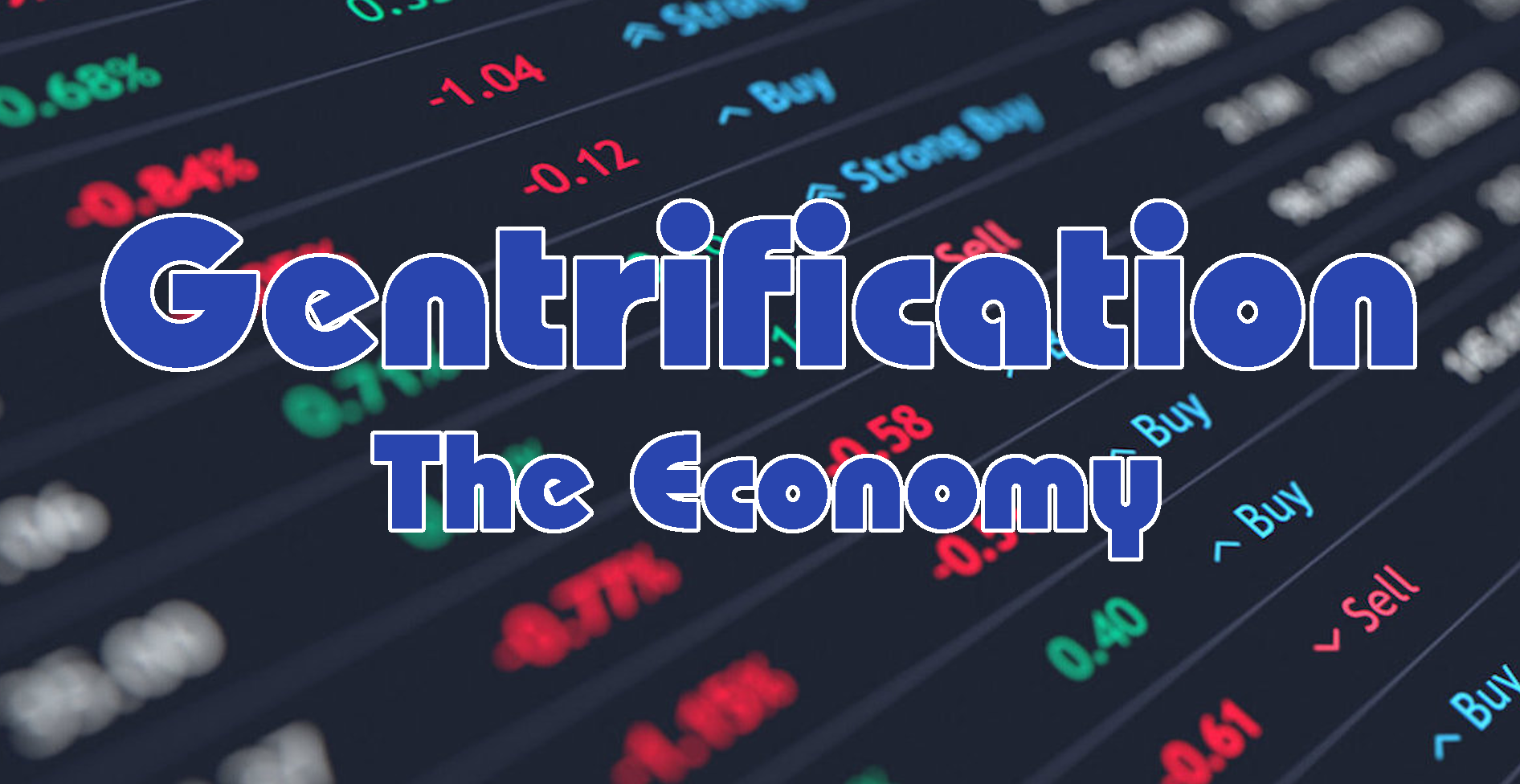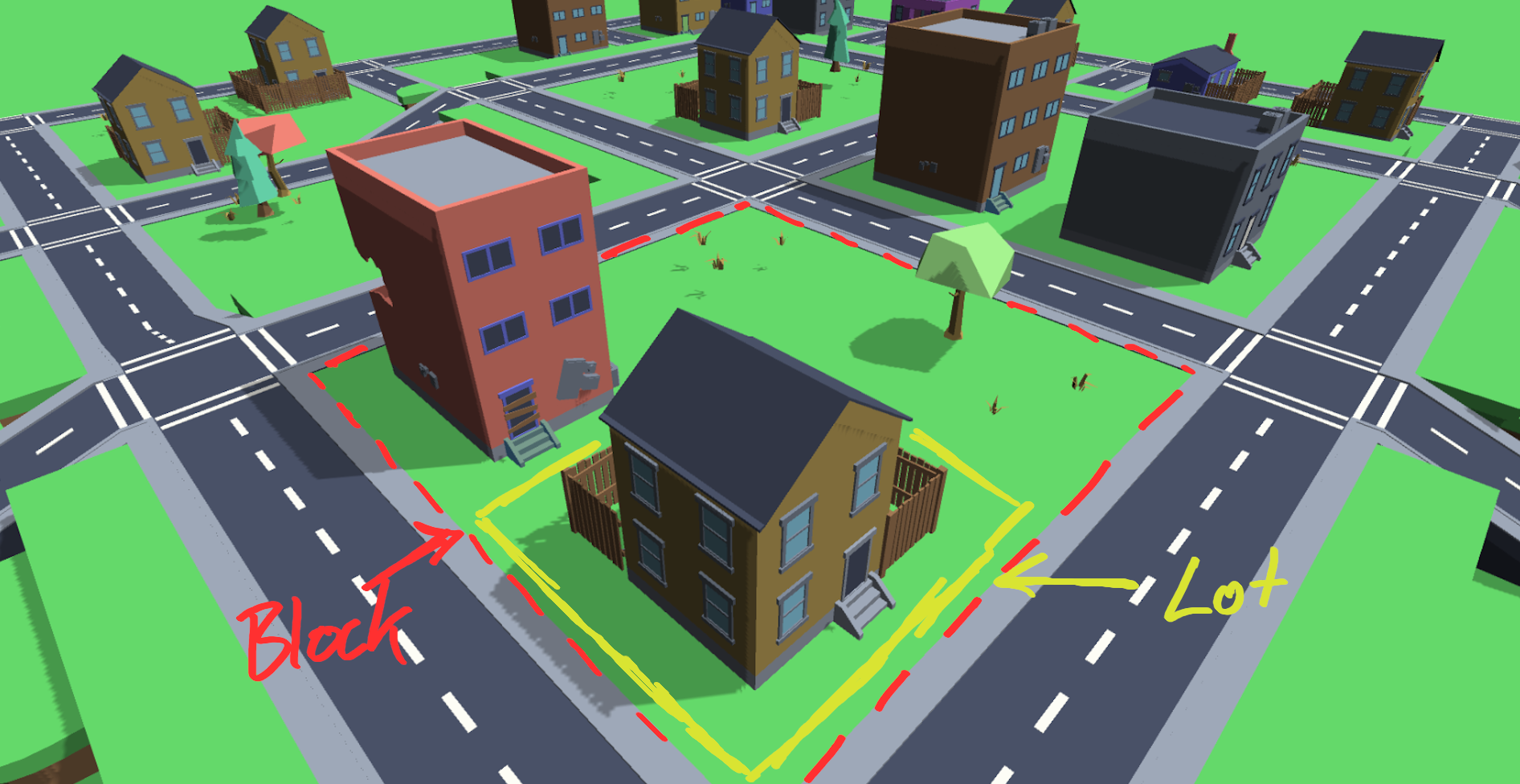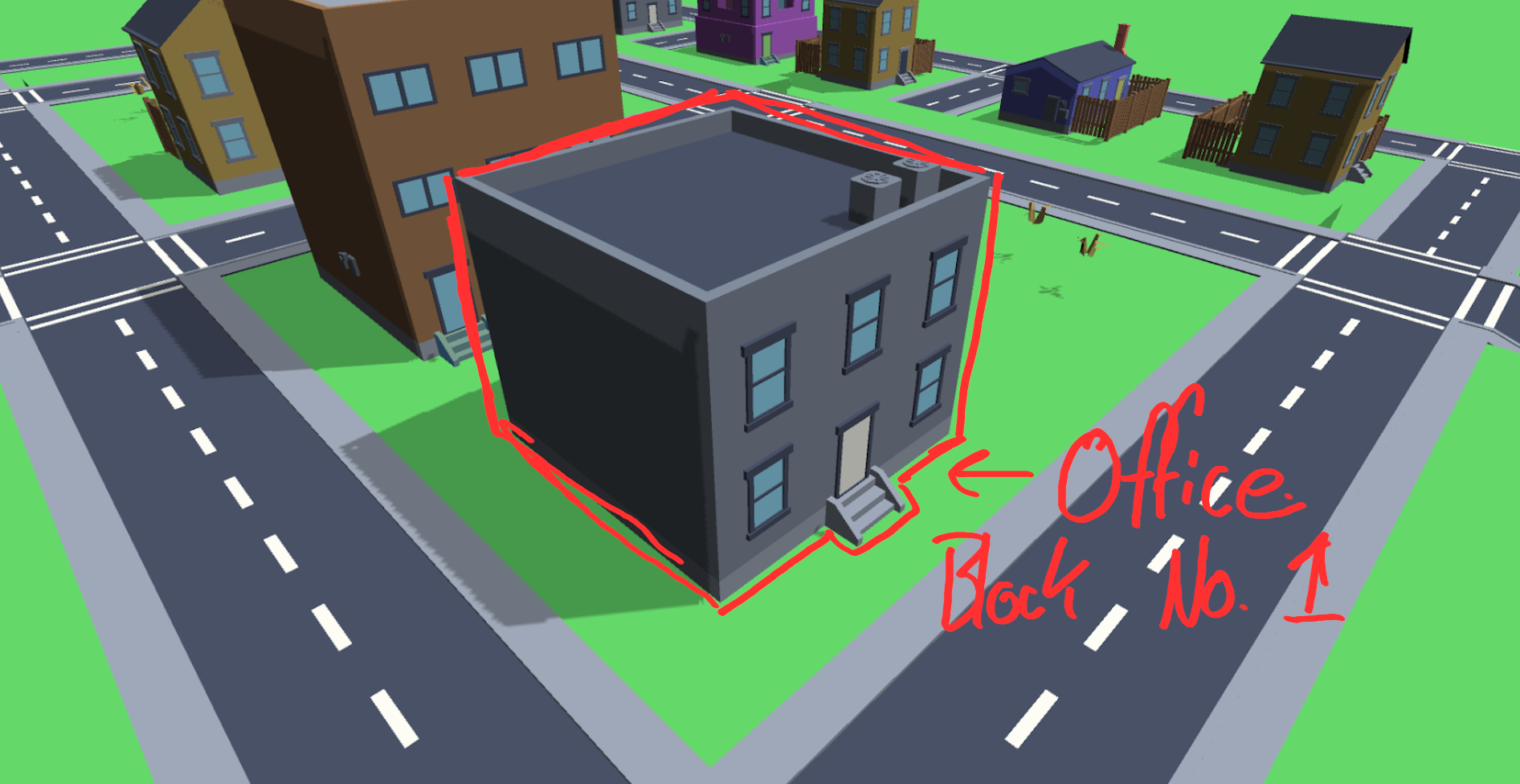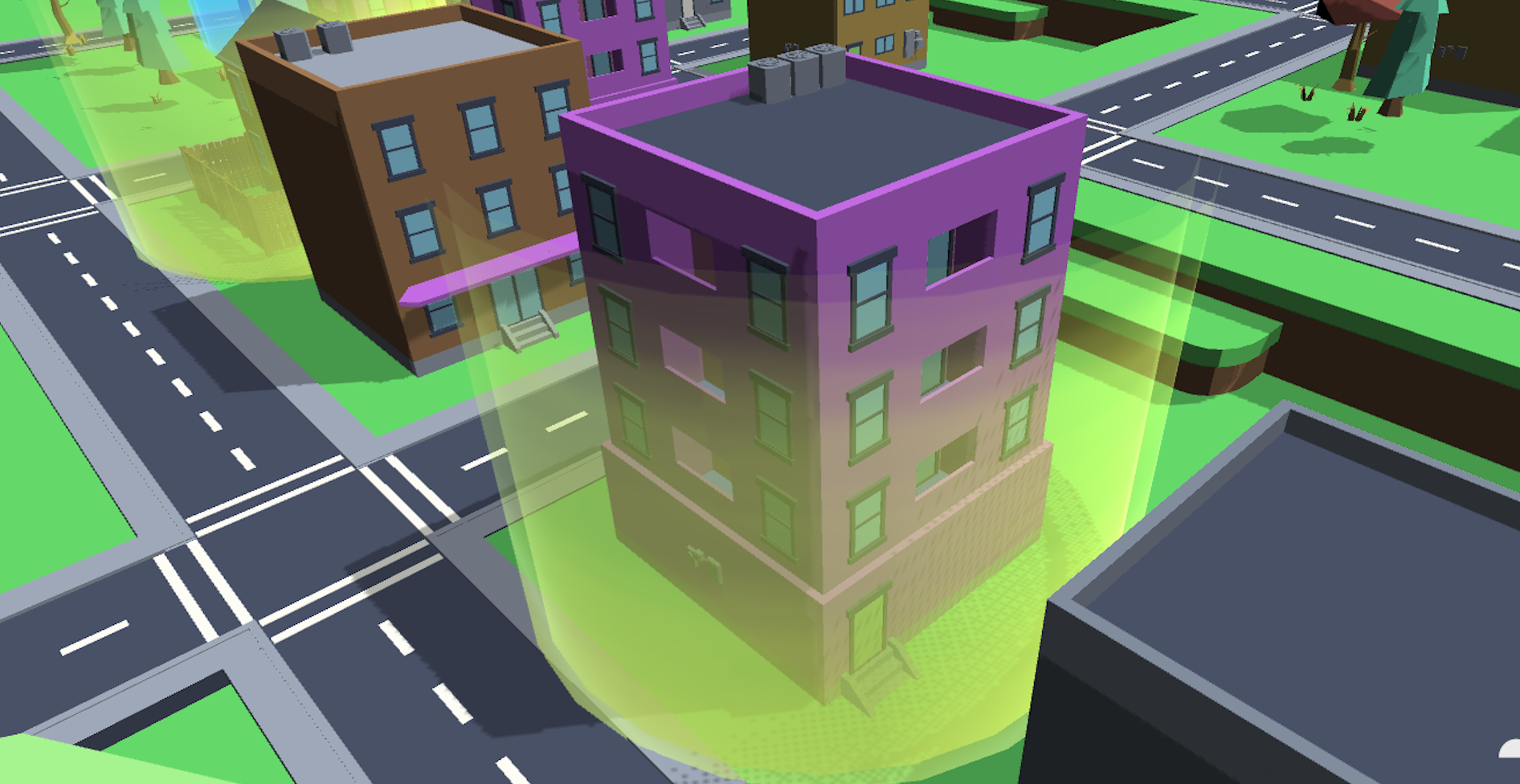
The whole point of Gentrification is letting the player get boiled like a lobotomized frog in a rapidly accelerating economy, which means the game needs a simulated accelerating economy.
I don't have the skills, tools, or frankly, the foundational knowledge to do a realistic simulation, and I doubt that would be fun anyway. So, here is a quick breakdown of what I've done instead.

The most important part of the economy is the lots. Each lot starts the game with a randomized value but is kept within $20 of the players starting salary. Every in-game month, about six seconds, the lots all send out a signal to their surrounding neighbors so they can reassess their own property value. For example, if a lot is surrounded by thriving businesses and public parks, its value goes up. If a lot is surrounded by burnt-out houses and a dive bar, its value goes down. Simple enough.
The economy is also being flooded with "money bombs" coming from a game piece that I've been calling the Tech Bros. This piece is based on the economic opportunity and destruction that seems to hit towns when something like an Amazon regional hub opens up in a new space. The "money bombs" are my way of simulating the Tech Bros investing in the local economy, in this case, literally firing a cannon full of money directly into the town.

If a money bomb hits a lot, the lots base value spikes. When its base value hits a certain threshold that is different for every entity, the lot will progress in its own skill tree. A community garden might become a public park, a vacant house will get demolished and replaced with a new home, a low-rise apartment will become a high-rise apartment, etc. And as the property value spikes, and as the neighborhood value raises, so too does the rent and the price of buying a home.
Now let's talk about some other types.

Commercial lots will develop into mini-office complexes, industrial areas, and mixed-use development. They have all the same simulated value as the housing lots, but they also start with a negative cash balance that can only be raised with a direct hit from a cash bomb. When the balance is filled, the lot will become a sort of bounce pad. Now, when the cash bombs hit, they'll just bounce off and keep going further on. This allows the Tech-Bros investments to keep expanding into the city as they invest more in local businesses. This is to simulate local businesses landing contracts with the Tech-Bros.
Next, we have government buildings. These are pretty simple. Instead of the money going directly to them, when they are hit the value is sent back out as an area of effect. Meaning every time a government building is hit, all the surrounding buildings will gain equal value. The more often the government buildings are hit, the farther the reach of the AOE. This is to simulate government programs getting some funding and backing from the new regional investment of the Tech-Bros.
Now we come to salary. The player's salary is largely controlled by how well they do in a series of mini-games. Obviously, if they do well in the games, pay raise, badly, pay cut. It is also affected by their proximity to points of economic power. So, if they rent a more expensive apartment closer to the new campus of the Tech-Bros, their pay will spike higher after a mini-game than it would if they were living farther out on the map in an area of low economic opportunity.

Real-estate sales are pretty simple. Only a small portion of existing houses will put themselves up for sale at any given time. After a few in-game months, they'll either return to being rental properties or get sold off and become un-rentable for a time, but they always have a chance of becoming rental properties again.
Now let's talk BlackRock, which I really need to give a different name before I am sued. If the Tech-Bros are a chaotic force of nature, this piece is your adversary. If this piece is on the board, it will submit bids for each property that ever goes up for sale. When they buy a property, they raise the rent dramatically and eliminate the possibility of it ever coming back on the market. So, each time they buy a house, the average rent goes up and the player's pool of potential houses also shrinks.
That's a very quick, very generalized summary of how the economy is simulated in Gentrification. I really didn't expect this article to be more than three paragraphs, but I guess the game's gotten more complex than I realized.
If you enjoyed this article, be sure to follow the Kickstarter to show some support. Or for further reading, check out The Shock Doctrine by Naomi Klein which directly inspired BlackRocks addition to the game. For a dose of existential dread check out this article on AI bidding on houses which inspired the mechanics of my BlackRock.
Thanks for reading,
-Andrew


